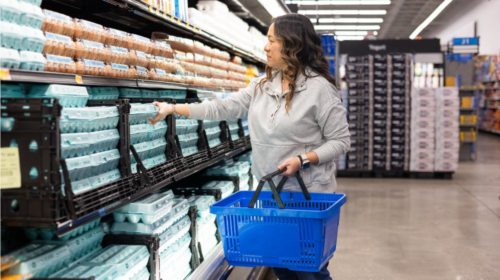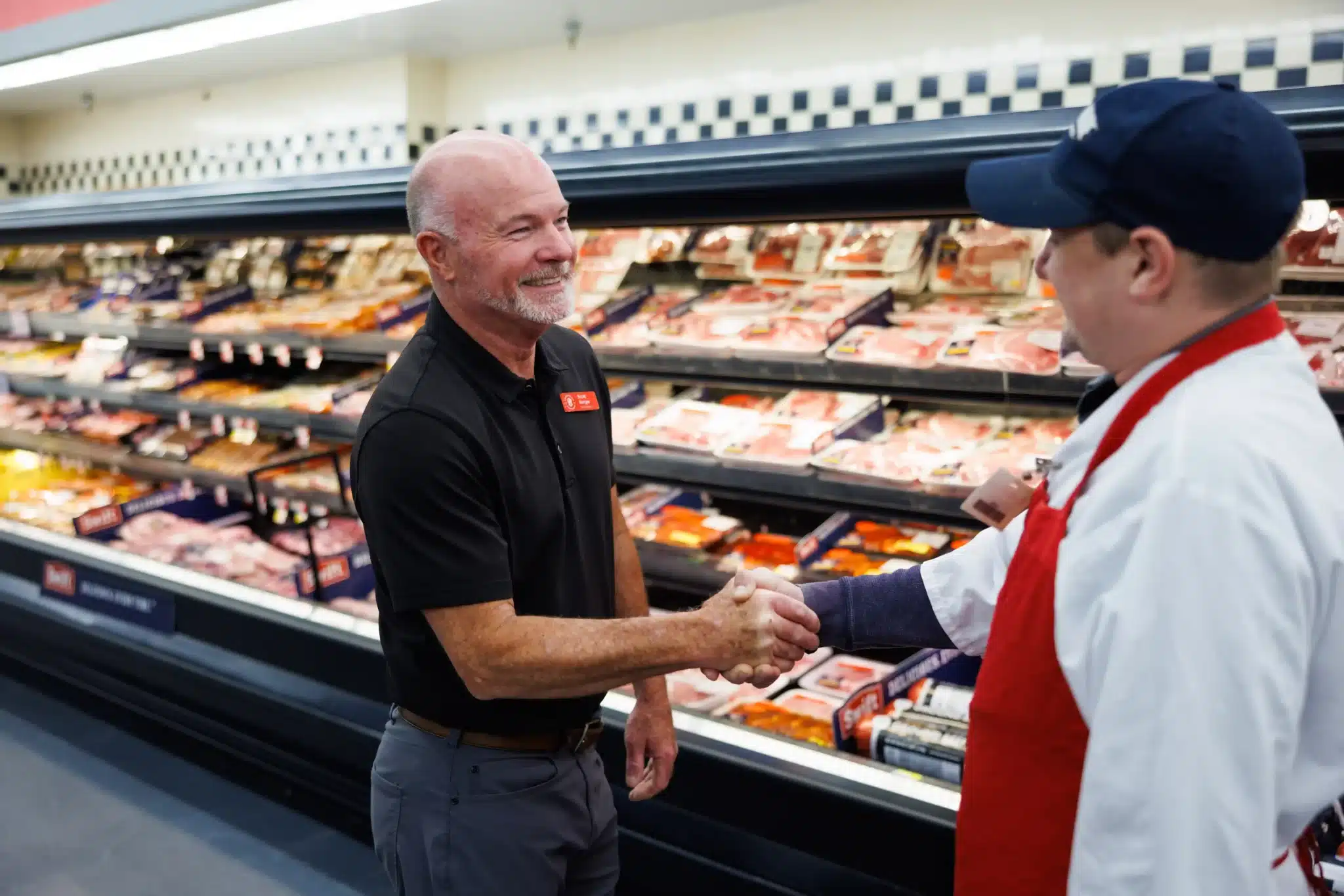The Food Safety Modernization Act: What suppliers, manufacturers, and retailers need to know
under Sustainability

In this article
Ensuring a safer future for food—Is your business ready?
Signed into law in 2011, the Food Safety Modernization Act (FSMA) introduced measures that have helped improve U.S. food safety regulations.
Because of the FSMA, new prevention-based safety systems and stronger traceability measures have reduced the risk of foodborne illnesses and contamination. However, while the law has been in effect for over a decade, certain provisions within it are coming into effect soon—specifically, FSMA Section 204(d).
Section 204(d) directs the Food and Drug Administration (FDA) to institute recordkeeping and safety requirements for high-risk foods. While this section has been part of the FSMA from the beginning, businesses must take proactive steps to get up to speed before the January 20, 2026 enforcement deadline.
This comprehensive guide explores:
- Best practices for jumpstarting compliance
- FSMA expectations
- What manufacturers, distributors, and retailers need to know about
- How traceability can influence sustainability initiatives
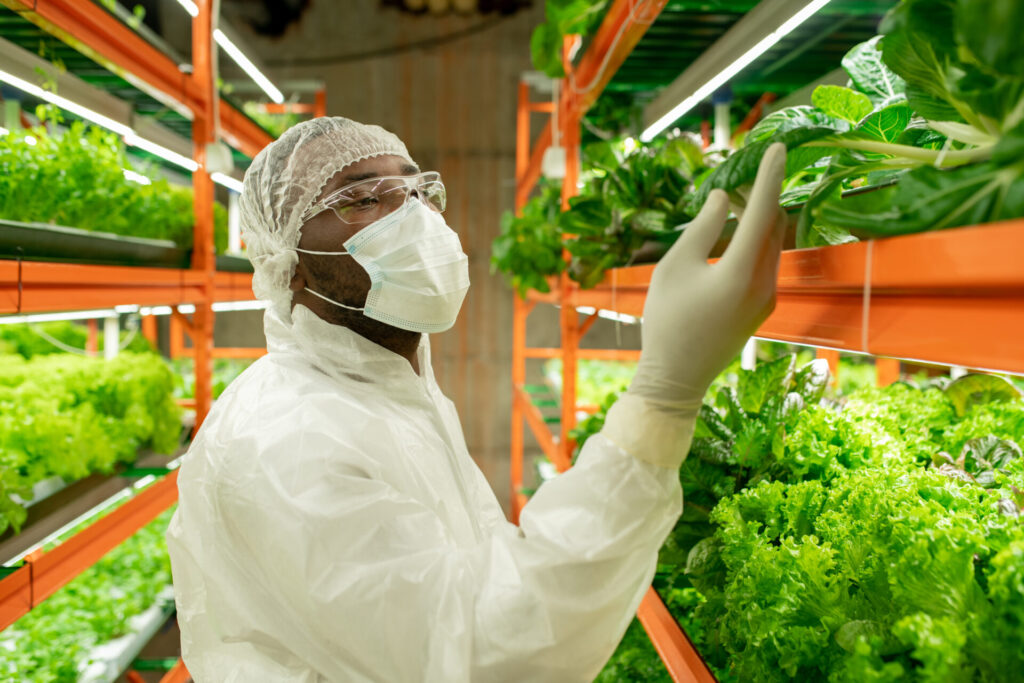
What does FSMA 204(d) mean for the food industry?
Consider the following statistics:
- Each year, foodborne illnesses affect 48 million Americans, leading to 128,000 hospitalizations and 3,000 deaths.
- The average cost of a food recall to a company is approximately $10 million in direct expenses, excluding brand damage and lost sales.
- In 2023, 76% of shoppers stated that transparency is very or extremely important, a 7% increase from 2018.
In this environment of high stakes and high costs, Section 204(d) emphasizes the importance of a transparent food supply chain; in fact, it’s so important that 69% of food and beverage industry decision-makers plan to increase their use of traceability technology by 2025.
But what needs to happen specifically under Section 204(b)? Below is an FSMA 204 overview that explores what food industry companies should start planning for.
Businesses will need to monitor Critical Tracking Events and Key Data Elements
Critical tracking events (CTEs) refer to points in the food supply chain where products are handled, transformed, or moved.
Each point represents a potential opportunity for contamination or risk and an opportunity to mitigate it. By monitoring CTEs, though, each movement or transformation within the food supply chain can be traced.
As a result, both businesses and the FDA can precisely isolate potential issues. For instance, when a contaminated product can be linked to a specific packing event, the FDA can conduct a much more targeted and efficient recall process.
On the other hand, key data elements (KDEs)—such as source, transformation, and transportation information—represent data points that could be tied to safety-related issues, such as temperature deviations during transit or processing delays.
For example, a food distributor might monitor temperature and timelines for seafood products en route to a retailer to ensure products aren’t exposed to unsafe temperatures during transit.
Under FSMA 204, KDEs must be meticulously logged as food items pass through CTEs. That means, however, that businesses need to carefully evaluate their data management systems and packaging solutions to determine whether they can support rapid, reliable data retrieval in case of FDA audits.

Traceability is more important than ever
Not all food items fall under the FSMA Section 204(d) scope. This rule specifically addresses items on the Food Traceability List (FTL). Under FSMA 204 traceability guidelines, businesses handling these foods must adhere to recordkeeping practices that allow for rapid identification and recall of contaminated products at each supply chain step.
Improved food traceability does more than improve safety; it can lead to reduced food waste. With better tracking systems, businesses more accurately predict shelf life, manage their product inventory, and quickly isolate contaminated products. This information can also prevent the unnecessary disposal of food, as well as lost productivity and revenue.
Recordkeeping responsibilities are going to expand
Effective recordkeeping is the cornerstone of FSMA compliance. However, Section 204(d) has specific requirements for how businesses must handle recordkeeping.
Record of traceability program
Covered entities must maintain records describing their traceability program, including:
- A description of relevant reference records
- A list of foods on the FTL that they handle
- A description of how traceability lot codes are assigned
- Other procedures used to maintain required records
Electronic records
Similarly, required records must be electronically stored in sortable formats by January 2025. This mandate requires food businesses to have a digital infrastructure that allows data to be easily retrieved, sorted, and analyzed.
Rapid FDA access
Timeliness is key in food safety issues.
Under Section 204(d), businesses must be able to produce FDA-requested records within 24 hours.
Businesses must also be able to provide any information that might help the FDA interpret records. For example, the recordkeeping business must provide translation if records are in Spanish.
Recordkeeping duration
Records must be maintained for at least two years and stored in original paper, electronic, or true copies to prevent deterioration or loss.

Meeting FSMA 204(d) standards: Recordkeeping, traceability, and compliance across the supply chain
The following breakdown examines how these changes may impact manufacturers, distributors, and retailers and what steps are necessary to keep pace with requirements.
How FSMA Section 204(d) impacts food suppliers
Given their role at the very start of the supply chain, food suppliers face distinct traceability requirements.
Traceability and recordkeeping for food suppliers
Ensuring full traceability for food suppliers means capturing every critical detail, from the field conditions to the moment crops are harvested.
- Map the journey of products from specific growing areas.
- Log environmental data, like temperature and moisture levels, to understand influences on crop quality.
- Record harvest details, including dates and the crews involved.
- Assign lot codes that link back to specific fields and harvest events.
Traceability offers more than compliance, though. These measures can:
- Reduce audit stress with quick, accurate records.
- Minimize waste by improving inventory management.
- Protect crop quality through precise environmental monitoring.
- Strengthen buyer relationships with verified sourcing transparency.
First-mile traceability
Suppliers, as the first link in the food supply chain, need to prioritize “first-mile” traceability. First-mile traceability refers to the documentation of a product’s journey from its initial harvest to the first processing or packing stage. As suppliers, it’s important to:
- Carefully document the transition from field to the first stage of processing or packing.
- Capture key details about initial post-harvest treatments and temporary storage conditions.
- Link each initial handling step back to original lot codes.
Getting first-mile traceability right allows food suppliers to pinpoint safety concerns and their sources quickly. When they can accurately zero in on issues, they stay ahead of FSMA compliance while better managing product quality.

How FSMA Section 204(d) impacts food manufacturers
Food manufacturers are the first in the line, meaning accurate data capture starts with them. Some of the key issues to consider include:
Traceability and recordkeeping
Food manufacturers will need to log KDEs and CTEs at each production stage. This requires an extensive and accurate traceability system, starting with establishing real-time production data tracking.
This might look like:
- Raw material stage: Log detailed information about the origin, quality checks, and any temperature readings before materials enter the production line.
- During processing: Manufacturers capture data like batch numbers, handling temperatures, and any transformations applied to ingredients.
- Before/during distribution: Share complete history of the product, from farm to distribution, downstream with distributors.
At each step, all data collected must be accessible and transferable in formats that comply with FDA standards, enabling seamless data retrieval during audits or recalls.
However, manufacturers must balance production timelines with data capture and management requirements. Without well-integrated processes and tools, compliance requirements could slow production timelines and make tracking items through the supply chain difficult.
Conversely, products that enable detailed traceability systems can help manufacturers reduce overproduction and optimize inventory levels.
For instance, a food manufacturer using smart reusable plastic containers (RPCs) equipped with tracking technology will be able to monitor temperature and location throughout the production and distribution processes. This information allows them to adjust production schedules to minimize waste, allowing for perishable items to be prioritized and reducing spoilage.
Supplier coordination
Manufacturers are responsible for ensuring that their suppliers meet FSMA requirements, which could potentially reshape sourcing strategies. The need for traceable, FSMA-compliant suppliers could influence pricing, supply reliability, and lead times, especially if specific suppliers cannot meet these standards.
While manufacturers implement these internal controls, distributors also play a critical role in maintaining FSMA-compliant standards throughout food transit.

How FSMA Section 204(d) impacts food distributors
One of the key issues distributors face is the traceability expectations for products in transit.
Distributors play a significant role in monitoring factors like temperature fluctuations and shock exposure, which can affect food quality and safety. Tracking this data not only ensures compliance but can also help in understanding and reducing food damage and losses during transportation.
Sanitary transportation
FSMA 204(d) focuses heavily on tracing contamination and managing recalls, but it also includes provisions to prevent them in the first place. As such, distribution businesses will face more extensive requirements for sanitary practices.
For distributors, this may mean updating cleaning routines and handling protocols, and verifying that containers and carriers meet FSMA requirements to avoid cross-contamination.
Temperature and safety monitoring
Under FSMA Section 204(d), distributors must monitor temperature-sensitive items in real time. However, this is nearly impossible in today’s complex transit landscape without the right tools.
IoT-enabled sensors, such as temperature-tracking RFID tags, allow food distributors to continuously monitor and record temperature data while products are in transit, providing an audit-ready trail for compliance.
Data management
Traceability and data tracking in transit are essential for maintaining compliance. Distributors must be able to respond quickly to FDA inquiries while handling high volumes of data as they trace products across the supply chain.
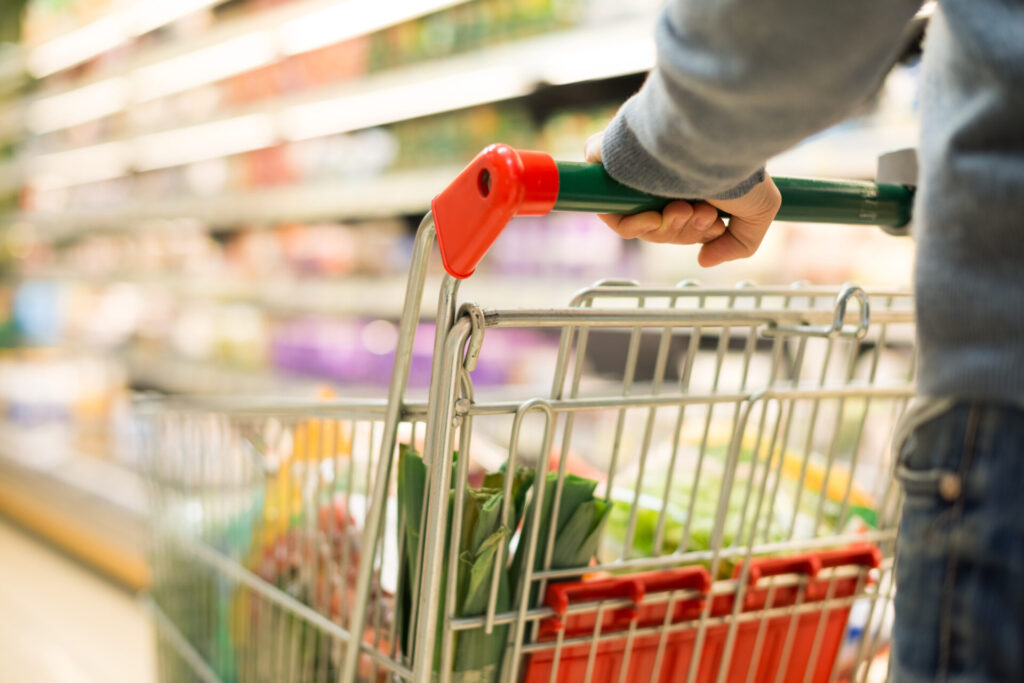
How FSMA Section 204(d) impacts food retailers
Retailers are the final link in the chain. As such, they carry unique responsibilities. They need to ensure their suppliers maintain compliance and manage consumer relationships.
Supplier verification
Retailers must ensure that suppliers provide detailed traceability for FTL foods, which may lead to shifts in supplier selection and evaluation criteria. This requirement adds complexity as it impacts long-standing supplier partnerships, necessitating robust supplier evaluations and ongoing compliance assessments.
Enhanced recall capability
Detailed traceability data enables faster, more effective recall actions, a significant benefit for consumer safety and brand reputation.
Yet, this improvement requires retailers to maintain high data integrity and rapid data-sharing capabilities, which may require new infrastructure and cross-department coordination.
Sustainability, traceability, and FSMA Section 204(d)
While FSMA primarily focuses on food safety, sustainability in the food supply chain is increasingly crucial. Just as FSMA requires detailed traceability, sustainability initiatives also demand comprehensive supplier data.
In fact, without rich supplier data, achieving credible and verifiable Scope 3 emissions measurements is next to impossible.
The overlap in sustainability and traceability is visible across numerous facets of the regulation. For example:
- CTEs and KDEs regarding transportation data can help companies measure and reduce their carbon footprint.
- Food industry sectors can use enhanced traceability and data management to identify more sustainable suppliers, reduce emissions with improved transportation routes, and offer consumers greater transparency about product sustainability.
- The new recordkeeping requirements, digital infrastructure, and data management systems used for FSMA can help track and report on sustainability metrics. With this information, companies can more efficiently address regulatory compliance and environmental goals.

Achieving FSMA compliance: Best practices and strategies
While the FSMA’s primary goal is to trace foodborne illnesses, its requirements can lead to broader benefits for your business, including increased consumer confidence, improved product quality, and minimized shrinkage.
Here are best practices to help make compliance with FSMA 204(d) an efficiency-enhancing, revenue-boosting process.
Reinforce your safety protocols
Safety is a priority across the industry, and Section 204(d) will only underscore that. To make sure your practices meet guidelines, consider taking a proactive approach and:
- Conducting regular food safety audits and inspections
- Updating protocols for handling and storing FTL items
- Reviewing recall processes to ensure they can be completed without unnecessary delays
- Creating a crisis management plan for food safety incidents
- Making food safety a consideration when developing and sourcing products
Leverage technology for compliance
According to a study by the International Trade Centre, traceability technology may help reduce the scope of a recall between 50-95%. Some options that allow for advanced traceability include:
- Reusable containers with built-in tracking capabilities that also help reduce landfill waste
- IoT-enabled sensors that allow for real-time temperature monitoring during transportation and storage
- Blockchain technology that creates a record of a product’s supply chain journey
- Machine learning algorithms that analyze traceability data and identify potential food safety risks
- Centralized cloud-based data management systems that allow for easier access to traceability information
Adopting these tools and systems offers distinct advantages to businesses.
For instance, a food distributor can collect information on damage rates associated with particular fields, processing plants, or transportation routes. This information can then inform decisions about their preferred food packaging systems, motivating a shift from less protective packaging to more containers that better preserve product quality and allow for traceability.
Focus on practical implementation
Address the practical challenges of implementing traceability, such as creating and managing new codes.
For example, assigning unique traceability lot codes at each production stage and training staff to handle KDEs can help you meet compliance requirements without sacrificing operational flow. Using standardized digital coding and data entry tools can also ensure consistent and accurate data entry, making it easier to share data with the FDA.
But while current compliance is vital, consider potential future uses of traceability data, such as tracking pesticide use or organic status. A forward-thinking approach can give your business a leading edge as future regulatory requirements and market demands shift.
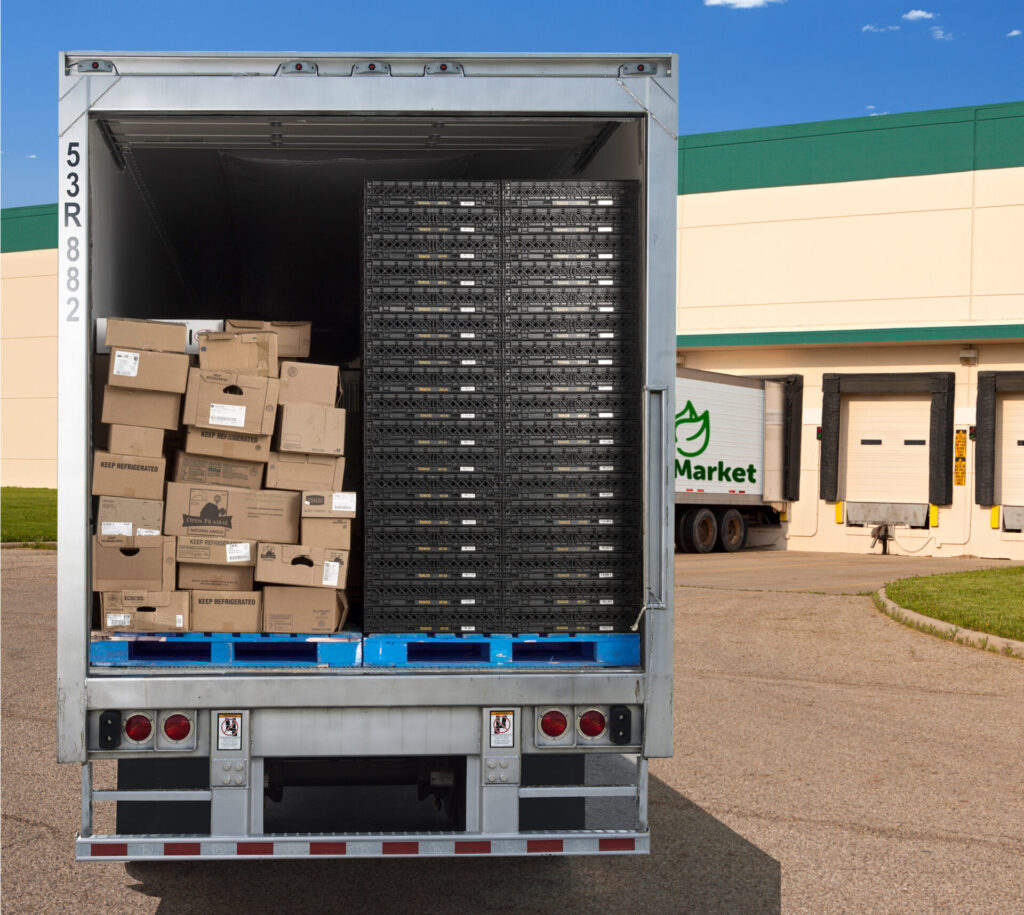
Tosca’s solutions for FSMA compliance
Navigating FSMA 204(d) compliance doesn’t have to be overwhelming. Tosca offers solutions tailored to FSMA needs:
- Reusable packaging solutions: Tosca provides a comprehensive range of reusable packaging options, including ventilated containers for produce, meat, and eggs; Bulk Bins for large-volume products; and durable Plastic Pallets. These solutions enable improved hygiene compared to traditional packaging, optimized storage capacity, and efficiency across supply chain applications.
- Tosca Asset IQ: Tosca Asset IQ provides both active and passive tracking options, with IoT sensors for real-time updates and RFID tags for scalable monitoring. Actionable dashboards improve asset visibility and enable informed decision-making about supply chain operations.
- Sanitary transportation support: Compliant sanitation processes are among FSMA’s expanded requirements. Tosca’s sanitary transportation support meets FSMA standards thanks to its innovative design and efficient pooling services. Tosca’s reusable packaging is easy to sanitize, which minimizes cross-contamination risks. Each container is rigorously cleaned and inspected within Tosca’s pooling model, ensuring FSMA-compliant hygiene and optimizing supply chain efficiency by reducing empty transport miles.
- Food safety and cold chain management: Tosca’s solutions promote food safety and cold chain integrity with non-porous, bacteria-resistant materials, ISO 22000-certified sanitization processes, and designs that facilitate rapid cooling and optimal temperature control. These innovative features extend product shelf life, minimize food waste, and maintain cold chain efficiency throughout the supply chain.
- Online data hub: With real-time tracking of reusable asset deliveries, users can quickly review shipment details and bills of lading. They can also access order history for quick retrieval of product movement data.
Looking ahead: FSMA compliance and beyond
As FSMA continues to evolve, Tosca is committed to helping businesses manage these changes with products and resources that streamline implementation and compliance. Get an expert supply chain analysis to see the difference Tosca can make for your business and its customers.

